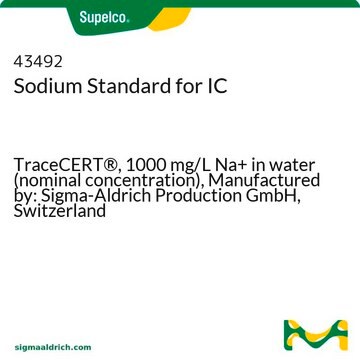15052
Boc-Ala-ONp
≥96.0% (HPLC)
Synonym(s):
Boc-L-alanine 4-nitrophenyl ester
Sign Into View Organizational & Contract Pricing
All Photos(1)
About This Item
Empirical Formula (Hill Notation):
C14H18N2O6
CAS Number:
Molecular Weight:
310.30
Beilstein:
1892073
EC Number:
MDL number:
UNSPSC Code:
12352202
PubChem Substance ID:
NACRES:
NA.22
Recommended Products
Quality Level
Assay
≥96.0% (HPLC)
reaction suitability
reaction type: Boc solid-phase peptide synthesis
application(s)
peptide synthesis
storage temp.
2-8°C
SMILES string
C[C@H](NC(=O)OC(C)(C)C)C(=O)Oc1ccc(cc1)[N+]([O-])=O
InChI
1S/C14H18N2O6/c1-9(15-13(18)22-14(2,3)4)12(17)21-11-7-5-10(6-8-11)16(19)20/h5-9H,1-4H3,(H,15,18)/t9-/m0/s1
InChI key
SUHFNHHZORGDFI-VIFPVBQESA-N
Looking for similar products? Visit Product Comparison Guide
Storage Class Code
11 - Combustible Solids
WGK
WGK 3
Flash Point(F)
Not applicable
Flash Point(C)
Not applicable
Personal Protective Equipment
dust mask type N95 (US), Eyeshields, Gloves
Choose from one of the most recent versions:
Already Own This Product?
Find documentation for the products that you have recently purchased in the Document Library.
H M Korchak et al.
The Journal of biological chemistry, 259(12), 7439-7445 (1984-06-25)
Activated neutrophils aggregate, generate superoxide (O-2), and degranulate. The role of Ca as "second messenger" in neutrophil activation was examined using as agonist the chemotactic peptide fMet-Leu-Phe and its antagonist t-butoxycarbonyl-Phe-Leu-Phe-Leu-Phe to systematically vary the time of receptor occupancy. Release
J L Sohl et al.
Biochemistry, 36(13), 3894-3902 (1997-04-01)
alpha-Lytic protease, a chymotrypsin-like serine protease, is synthesized with an N-terminal 166 amino acid pro region which is absolutely required for folding of the protease. The pro region is also the most potent inhibitor of the protease known with a
Our team of scientists has experience in all areas of research including Life Science, Material Science, Chemical Synthesis, Chromatography, Analytical and many others.
Contact Technical Service








